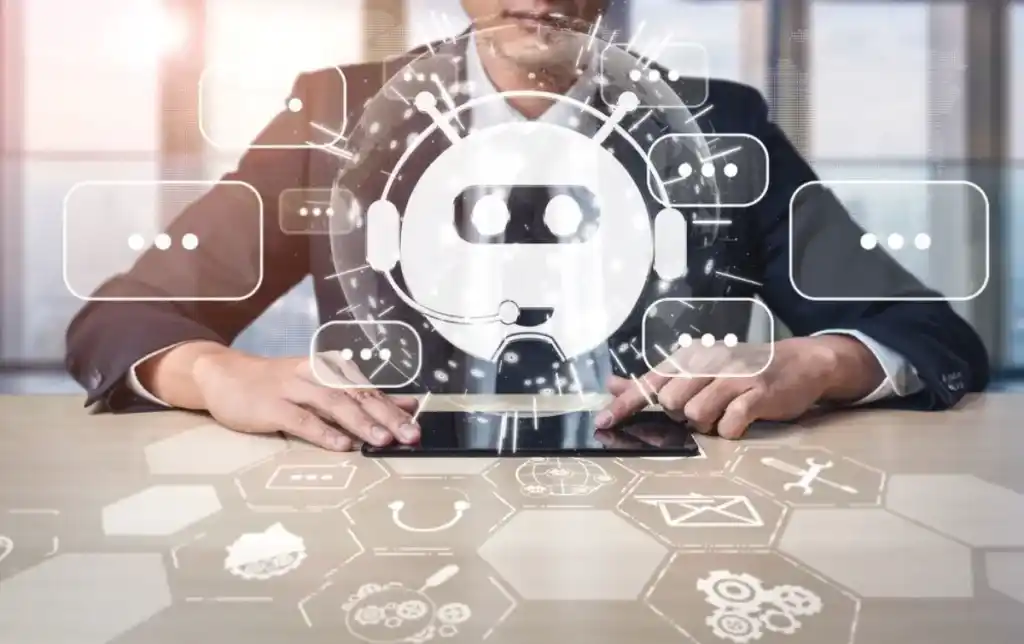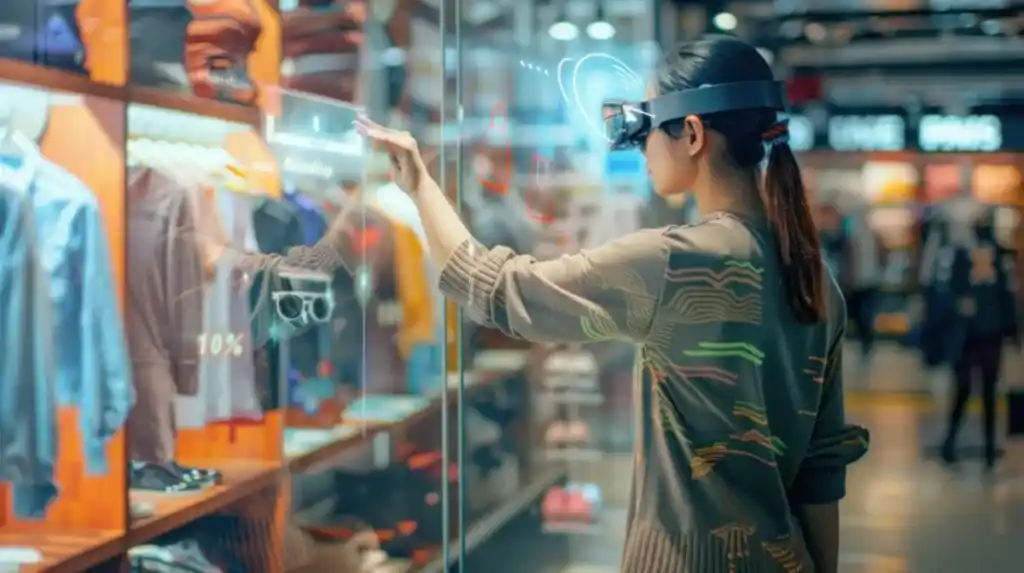
The Role of AI in Everyday Life: Practical Applications
AI has quickly shifted from a futuristic concept to a vital part of daily life. Thanks to advances in machine learning, natural language processing, and automation, AI applications are now more accessible. Both individuals and businesses can benefit from these changes. AI is impacting smart home devices and healthcare innovations. This technology shapes how we live, work, and connect.
This article looks at real-world AI applications that influence our experiences. It highlights how AI technologies boost efficiency, convenience, and productivity across various sectors. The rise of AI in daily life has made technology more intuitive and impactful.
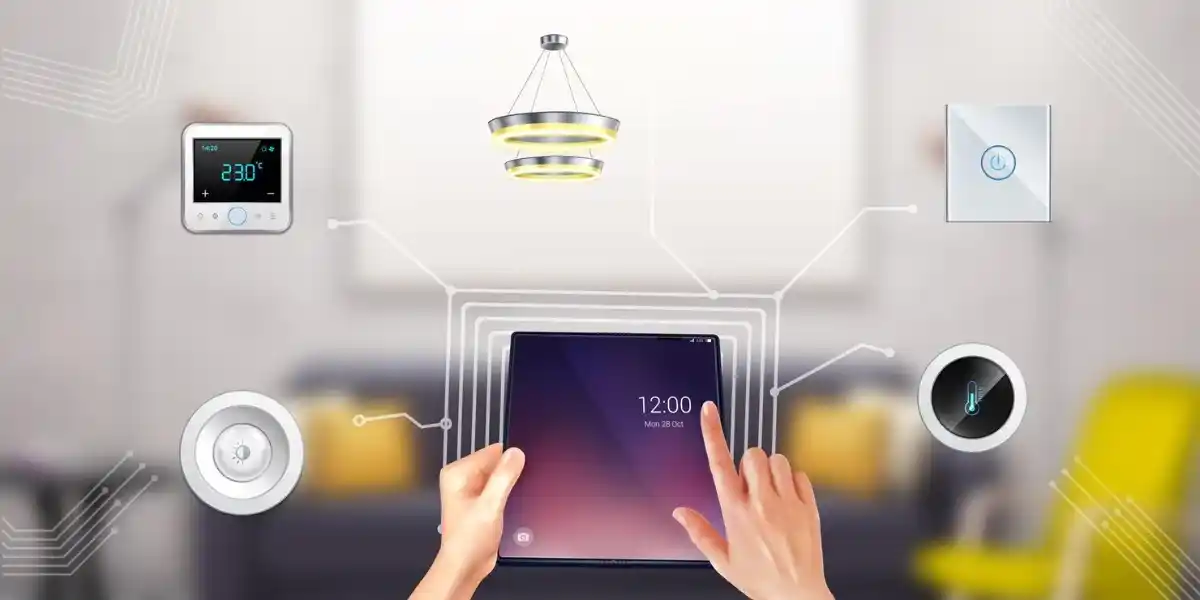
AI in Smart Homes
Smart Assistants
Voice-controlled AI assistants like Amazon Alexa, Google Assistant, and Apple’s Siri have transformed home automation. These assistants use natural language processing to understand user commands. Users can control lights, thermostats, and security systems with their voices. The presence of AI in daily life is clear in how these devices improve our homes.
Home Security and Surveillance
AI-driven security systems enhance home safety with real-time facial recognition, motion detection, and automated alerts. Ring and Arlo smart cameras use AI to recognise familiar faces. This helps cut down on false alarms and improve security. These are common AI applications in modern households.
Energy Efficiency
Smart thermostats like Nest and Hive learn user habits to optimise energy use. They adjust heating and cooling based on when people are home, leading to reduced energy consumption and lower bills. AI lighting systems also save energy by adjusting brightness automatically, making AI in daily life more sustainable.
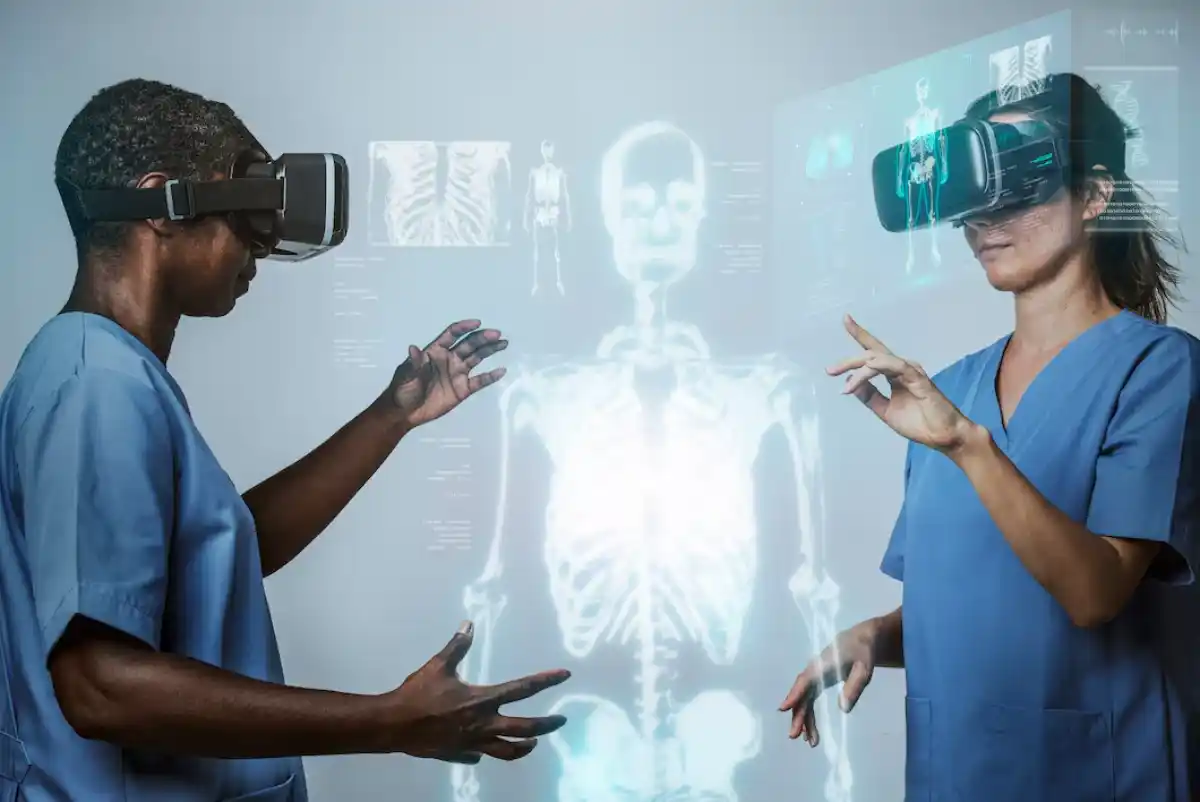
AI in Healthcare
Early Disease Detection
Machine learning use cases in healthcare are vast. One promising application is early disease detection. AI diagnostic tools analyse medical images like X-rays and MRIs to find anomalies accurately. For example, AI-driven mammography screenings can detect breast cancer earlier, improving treatment success. These AI applications are changing healthcare.
Virtual Health Assistants
AI chatbots and virtual assistants, such as Babylon Health, give quick medical advice based on symptoms. They use natural language processing to understand queries and suggest diagnoses. This helps ease the burden on healthcare resources while improving access. This is another example of AI in daily life enhancing patient care.
Personalised Medicine
AI is transforming personalised medicine by analysing genetic data for tailored treatments. This makes medications more effective and reduces side effects, leading to precise healthcare. AI applications in medicine keep evolving to improve patient outcomes.
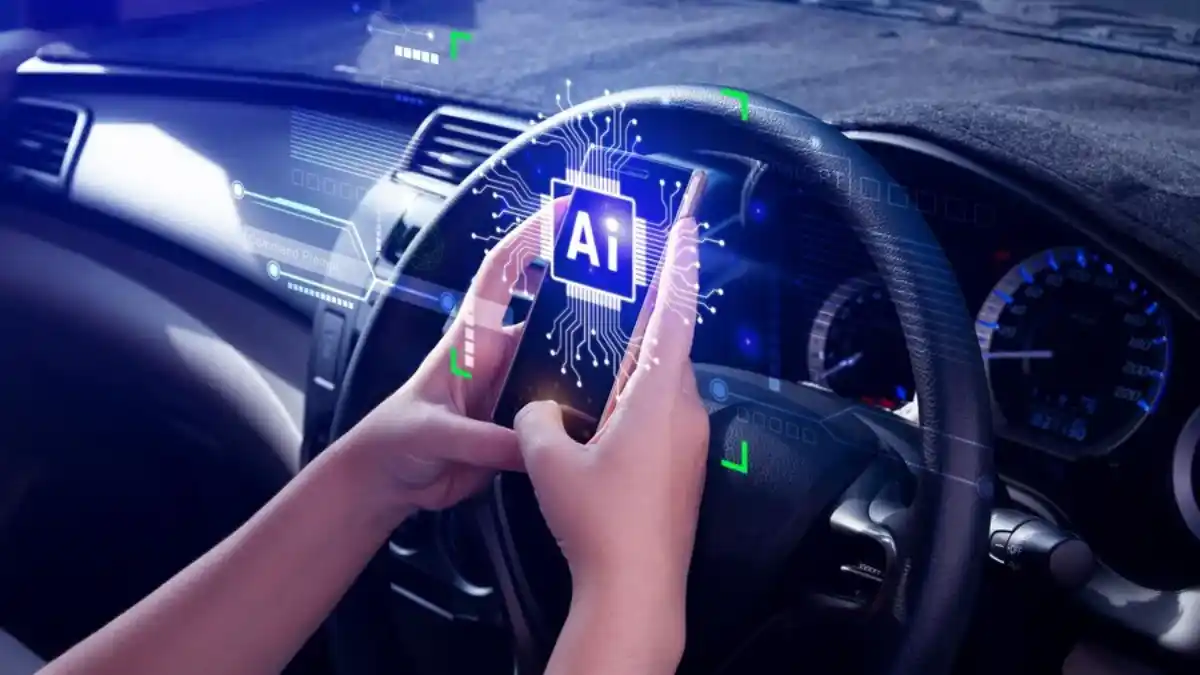
AI in Transportation
Autonomous Vehicles
Self-driving cars powered by AI and machine learning are becoming a reality. Companies like Tesla and Waymo lead in developing this technology. They use AI sensors, cameras, and radar to navigate safely. Autonomous vehicles are still being developed. In the meantime, AI-driven driver assistance systems, like adaptive cruise control, improve road safety. These innovations show machine learning use cases in transportation.
Traffic Management and Navigation
AI-powered navigation systems like Google Maps and Waze use real-time traffic data to suggest optimal routes. They consider traffic jams, accidents, and road closures. This helps commuters save time and cut fuel use. The integration of AI in daily life is clear in how we navigate cities.
AI in Retail and E-commerce
Personalised Shopping Experiences
Retailers are using AI for personalised shopping experiences. AI recommendation engines, such as Amazon and ASOS, look at what customers like. Then, they suggest products based on those preferences. This boosts customer satisfaction and sales. AI applications in retail make shopping more engaging.
Chatbots and Customer Service
AI chatbots offer 24/7 customer support, answering questions, processing orders, and handling complaints. H&M and Tesco use AI chatbots. These tools improve service by providing quick and accurate answers. This is another important machine learning use case in business.
Fraud Detection and Prevention
AI is key in fraud detection for online transactions. Machine learning analyzes transaction patterns to spot suspicious activities, lowering financial fraud risks. Banks and fintech firms, such as Monzo and Revolut, use AI. They monitor transactions and alert users to possible threats. These AI applications greatly improve security.
AI in Education
Adaptive Learning Platforms
AI-driven adaptive learning platforms, such as Century Tech and Knewton, adjust content to match how students perform. These platforms find knowledge gaps and adjust lessons, enhancing learning outcomes. AI in daily life is making education more effective.
Automated Grading Systems
AI streamlines assessments through automated grading. It checks written and multiple-choice answers. This helps teachers with their workload and makes grading fair. These AI applications boost efficiency in education.
Virtual Tutors
AI-powered virtual tutors provide extra learning support with explanations, quizzes, and interactive exercises. These tutors help students reinforce concepts outside school, making education more accessible and efficient. This showcases how machine learning use cases improve learning.
AI in Finance
Robo-Advisors
AI-driven robo-advisors are changing investment management. Nutmeg and Wealthify look at market trends. They suggest strategies to help you meet your financial goals. These are strong AI applications in finance.
Predictive Analytics
Banks use predictive analytics to evaluate creditworthiness, detect fraud, and improve lending. AI looks at spending patterns and financial history. It predicts risks and opportunities. This makes machine learning useful in finance.
Automated Trading
AI trading algorithms are changing financial markets. They execute trades using real-time data. These systems look at price changes and economic indicators. Then, they make quick decisions. This shows how AI in daily life extends to the stock market.
Ethical Considerations and Challenges of AI
AI offers many benefits, but it also presents challenges that need attention for ethical use.
Data Privacy and Security
AI systems rely heavily on personal data. This creates concerns about privacy and security. Organizations must enforce strong data protection to safeguard user information and comply with regulations like UK GDPR.
Bias and Fairness
AI algorithms can carry biases from training data, leading to unfair outcomes. To ensure AI fairness, we must monitor it constantly. This helps prevent discrimination in hiring, lending, and other decisions.
Job Displacement
Automation and AI raise worries about job displacement. AI creates new jobs, but workers need to learn new skills. This is key to staying relevant in an AI-driven economy.
How AI Shapes Daily Life: Real-World Applications in 2025
AI is changing daily life. It boosts convenience, efficiency, and innovation in many areas. AI applications are everywhere. They span smart homes, healthcare, finance, and transportation. Plus, they keep changing and growing.
However, ethical challenges must be addressed to ensure AI benefits society. The UK can harness AI’s potential by encouraging responsible development and regulation. This way, it can also protect privacy, ensure fairness, and safeguard job opportunities.


